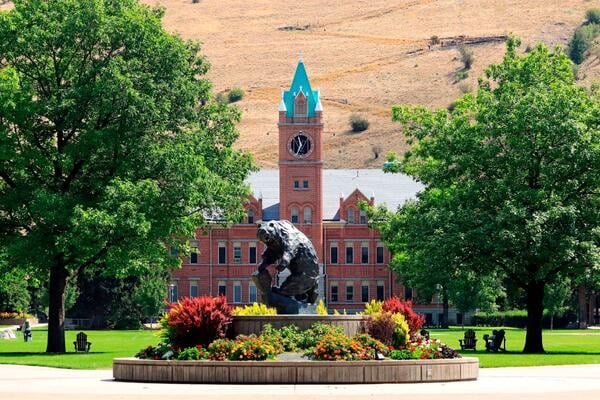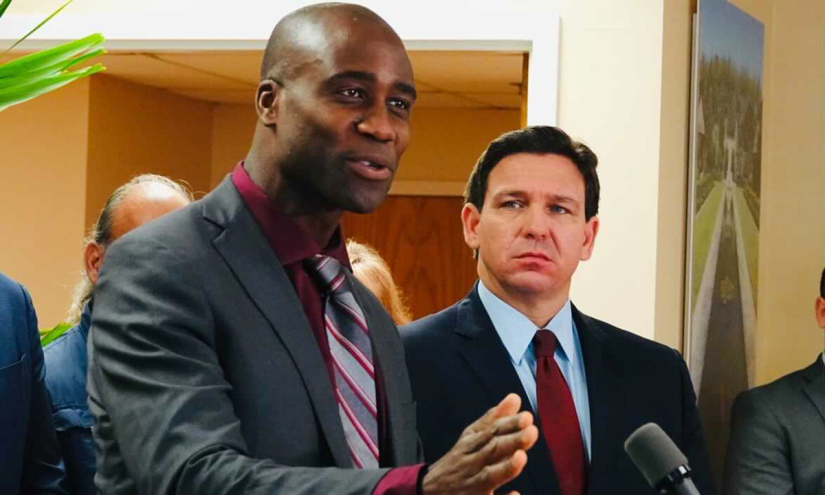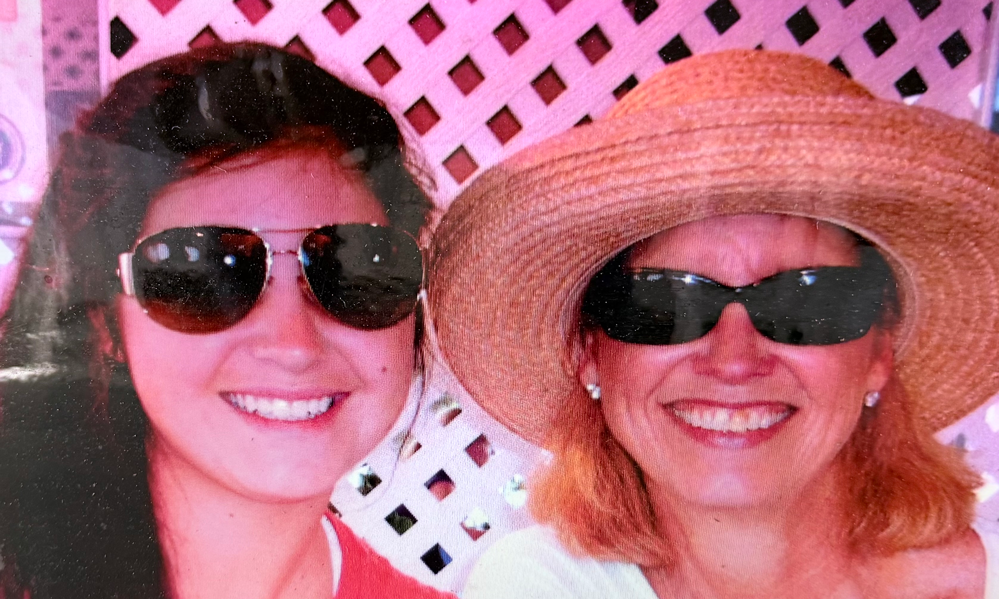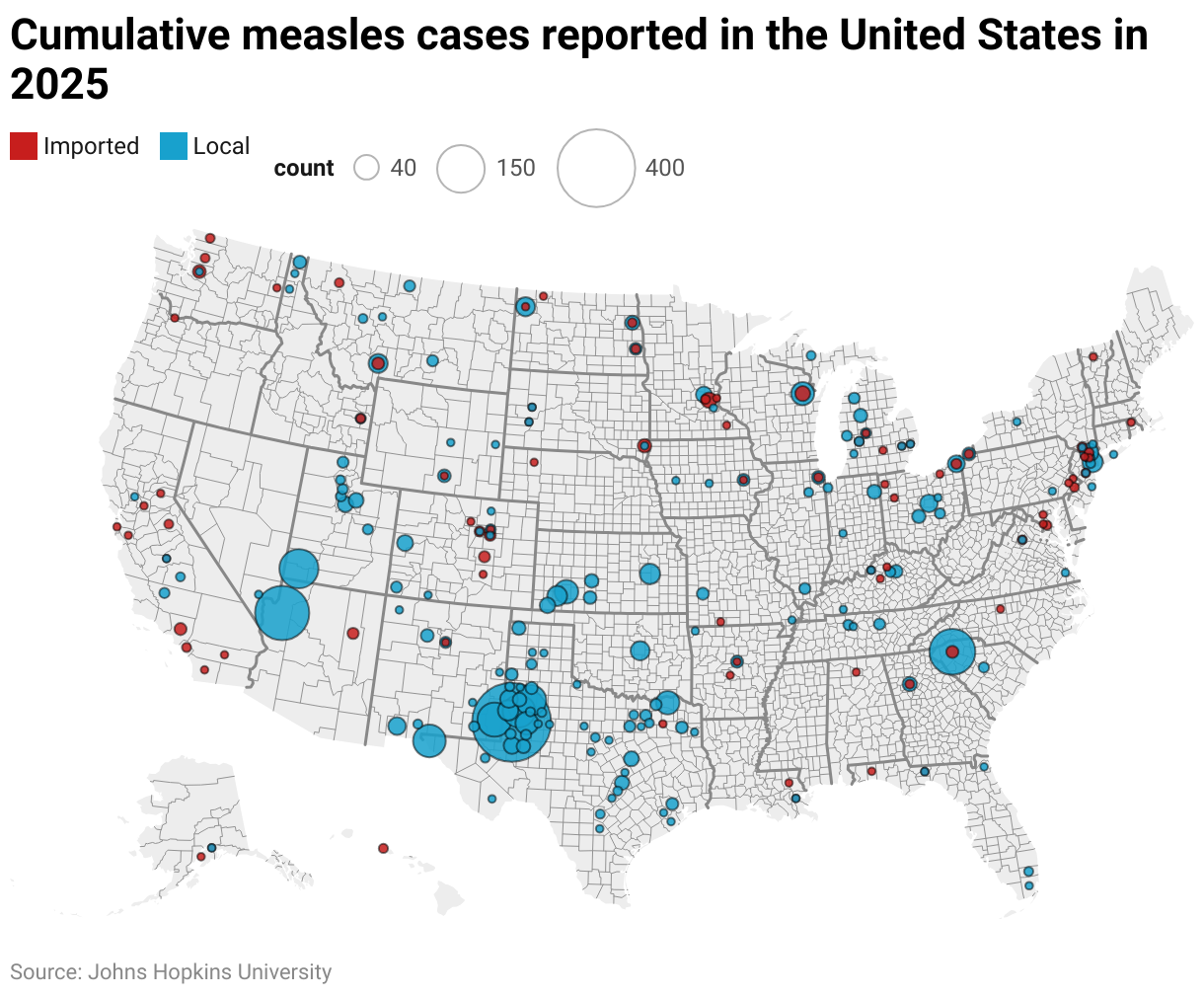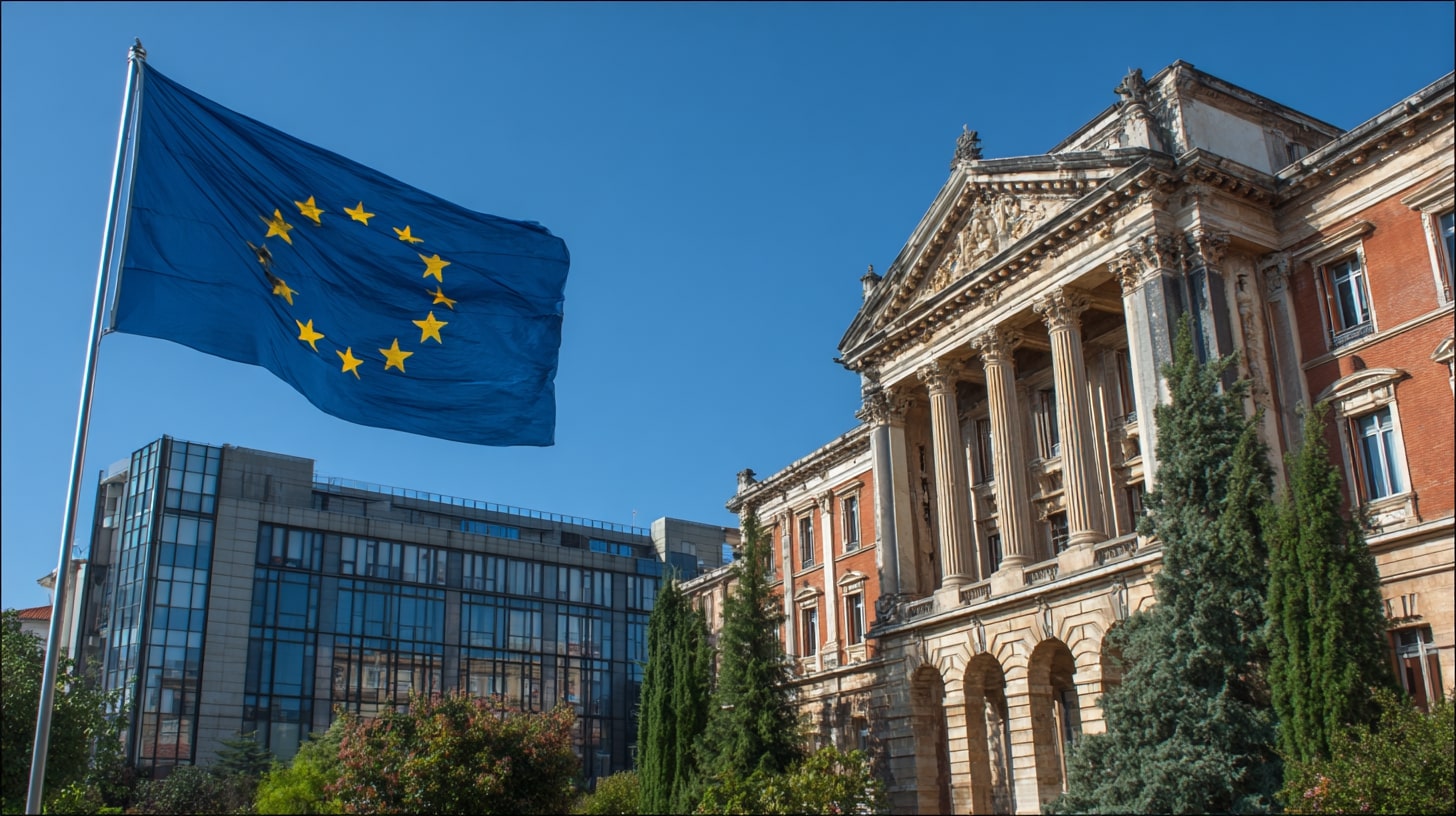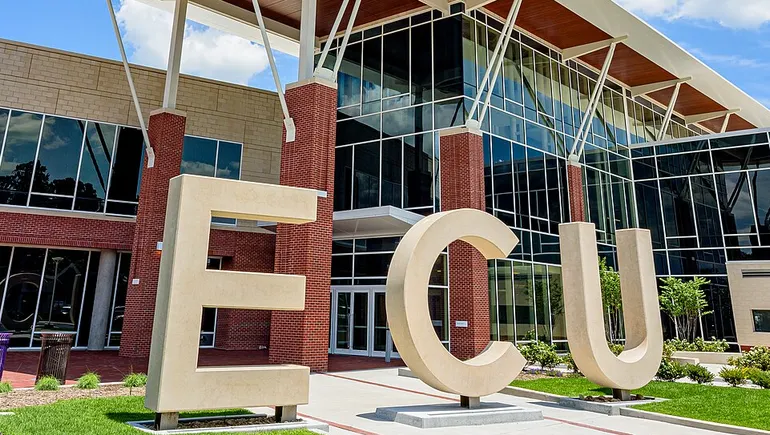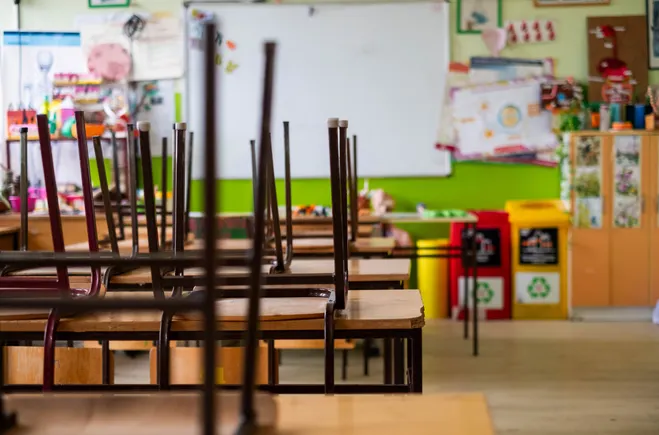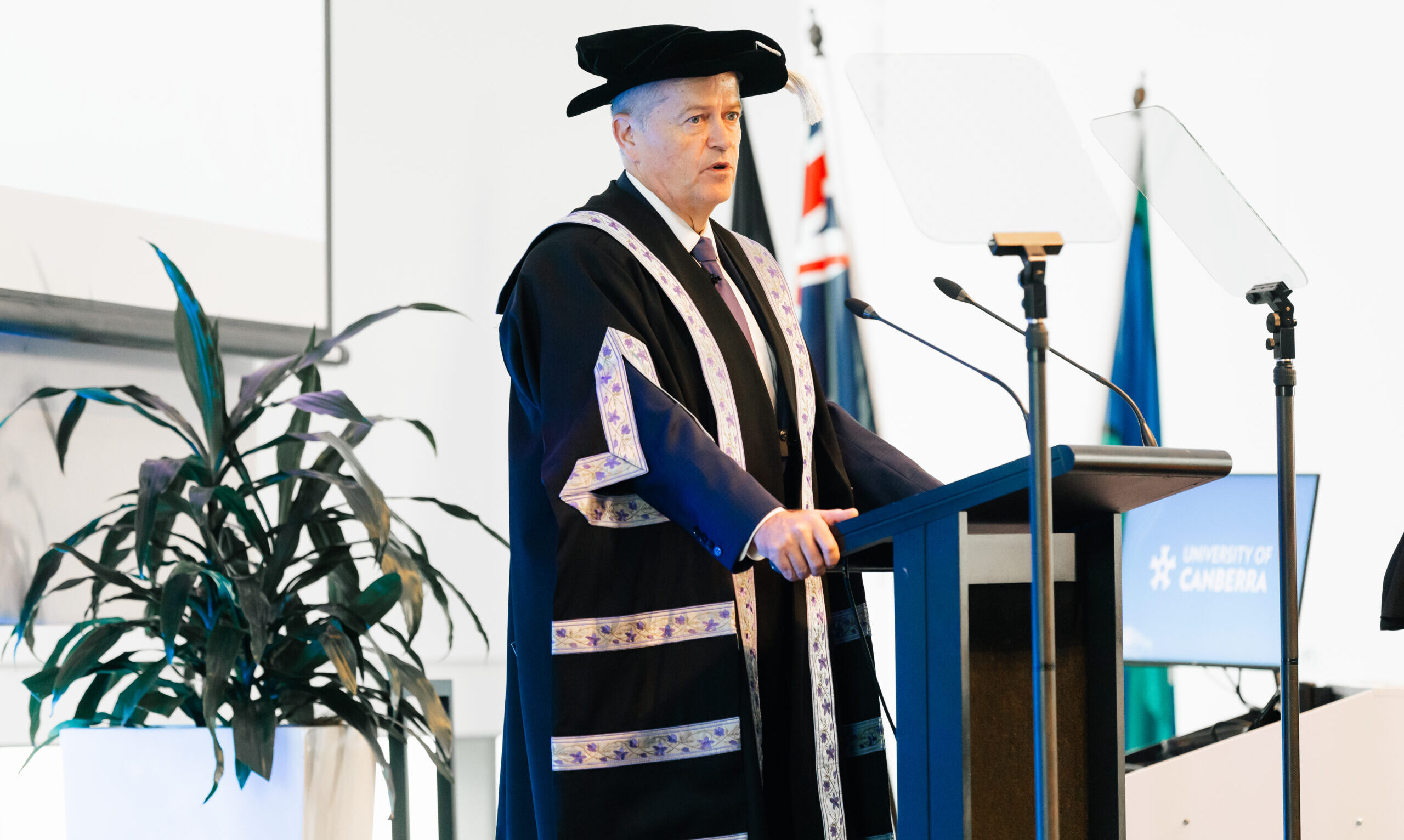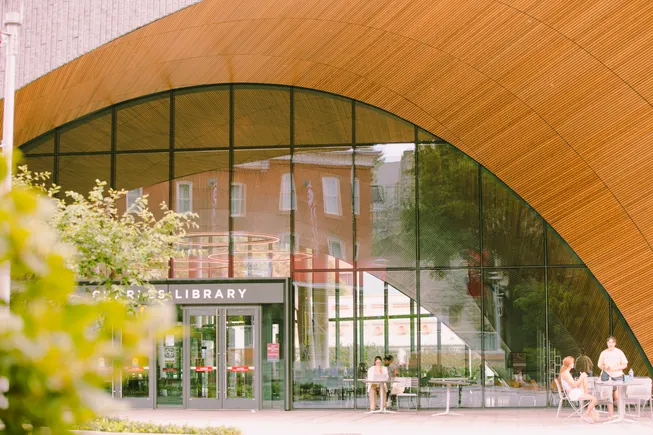I can’t be the only person who, on reading the press releases, was confused about what Kent and Greenwich are actually planning.
The releases call it a “trailblazing” collaboration that will “bring both institutions under one structure” – with one unified governing body, academic board and executive team, and one vice chancellor.
At the same time, students will continue to apply to, study at and graduate from their chosen university, and Kent’s FAQ reassures that “nothing will change for the foreseeable future” and that the “day-to-day experience will remain the same.”
So which is it – one provider with two brands, or two universities with some shared services? And will change be felt on the ground, or just in the cloud?
The messaging is a masterclass in cakeism – implying all the efficiency benefits of merger with none of the disruption costs, all the scale advantages of integration with none of the identity losses, and all the governance streamlining of unification with none of the democratic deficits.
Maybe the most positive spin possible is inevitable when at least one of the partners is in financial strife.
But the apparent contradictions matter – because while a “single spine, shared standards, separate shopfronts” model may be novel in UK terms, it’s one of many hybrid approaches that plenty of European universities have been experimenting with for over a decade.
Frustratingly, there’s never been much research that might help us learn lessons from the seemingly constant process of group consolidation and (sometimes quasi-)merger in UK further education since incorporation in the 1990s.
There’s not even been much analysis on the reshaping of Welsh HE in the last decade following then Welsh Education Minister Leighton Andrews’ “urge to merge” – at least not that’s focussed on the upsides or otherwise for students.
But on the wider continent, the last two decades have witnessed what Pedro Teixeira from the University of Porto describes as a “surge” in university mergers – close to 130 cases since 2000, according to the European University Association’s comprehensive merger tool.
Many of these have involved the kind of complex institutional arrangements Kent and Greenwich seem to be proposing – shared governance with retained identities, unified back-office functions with separate student-facing brands, promises of continuity alongside fundamental structural change.
For all the grand pronouncements about “trailblazing models” and “world-class institutions”, the European experience repeatedly tells a more mundane story – one where student consultation means performative surveys that don’t produce policy changes, where staff meetings devolve into ideological standoffs over academic direction, and where promised synergies dissolve into territorial disputes between competing institutional cultures and administrative hierarchies.
So the good news is that Kent-Greenwich, and all the others that may follow, can potentially learn from them all.
Et s’il fallait le faire
What happens when political ambition meets student reality? France’s merger programme (2009-2020) aimed to create globally competitive “super-universities” capable of challenging MIT and Stanford. The result was students describing a “loss of soul” during extended integration periods.
The University of Paris-Saclay (2018-2020) – Emmanuel Macron’s flagship answer to MIT – united 19 institutions covering 15 per cent of France’s research output. Students at UVSQ linked their opposition to wider concerns about precarity and democracy.
Student organiser Tristan Peglion argued that the university’s board should be “on the side of students rather than international rankings,” while protesters complained that “things aren’t clear.” Even the French National Assembly acknowledged that student consultation was “far from smooth”.
Students experienced administrative confusion creating parallel systems that operated simultaneously for years, while the emphasis on research excellence meant undergraduate teaching quality became secondary to international profile development.
And at Aix-Marseille University (2012), students faced tougher academic rules as the university standardised policies by adopting the most restrictive options from across departments, while student support services were cut through mergers and downsizing.
The HCERES (Council for the Evaluation of Research and Higher Education) assessments systematically documented that undergraduate student experience deteriorated while research infrastructure received priority investment.
When institutional transformation prioritises external prestige over internal community welfare, it looks like students pay the price – through reduced support, increased confusion, and weakened engagement and participation.
Hard rock hallelujah
Even the celebrated success stories leave students struggling with fragmentation and volatility. Finland’s Aalto University (2010) is probably the country’s most celebrated merger, backed by substantial government funding and political commitment.
But students experienced years of uncertainty about curriculum changes, administrative confusion as three different systems were gradually integrated, and campus integration challenges.
After more than a decade, student satisfaction remained volatile throughout integration, and cultural integration remained incomplete years after formal merger.
The University of Tampere merger (2019) offers up some more recent evidence. Students described a sense of institutional disconnection during the process, more administrative confusion with parallel systems operating simultaneously, and faced inconsistent treatment between students from different legacy institutions.
The University of Eastern Finland suggests that mergers can create:
…a site of contestation where different organisational identities, values and histories collided, leaving the new university struggling to define itself.
The Finnish experience contains some uncomfortable truths – merger benefits are not automatic, cultural integration can’t be forced through administrative restructuring, and student experience can suffer for years during transition periods.
If the Finns – with their additional funding, careful planning, and institutional commitment – struggled with these challenges, what does that suggest for UK mergers driven by financial pressures?
Like a satellite
If you were planning a merger, you’d want to avoid students being left orbiting inefficiently around duplicated services, never quite connecting.
The creation of the University of Duisburg-Essen tells a story of efficiency-focused consolidation that can create persistent practical problems for students. Rather than streamlined admin, the merger created duplicated services requiring constant coordination between sites.
Student support services, IT help desks, and academic administration operated in parallel, creating confusion about procedures and reducing overall responsiveness. Academic staff spent significant time travelling between campuses, reducing their availability for tutorials, office hours, and research supervision.
Students studying identical programmes experienced different levels of access to laboratories, specialist software, and research equipment depending on their campus location. Library resources and study spaces required duplication, straining budgets and reducing overall provision quality.
Graduate employment suffered from employer confusion about degree equivalence and institutional reputation, while professional accreditation processes became more complex across multiple sites. And twenty years later, student satisfaction consistently remains below sector averages – while admin costs exceed initial projections.
It seems that efficiency-focused consolidation often creates complexity rather than simplification, with students bearing the cost through reduced support and service quality.
Fly on the wings of love
Let’s try to avoid students becoming casualties of administrative chaos when comprehensive reform creates systematic disruption.
Denmark’s 2007 reforms reduced 12 universities to 8 while simultaneously integrating government research institutes. The scale and speed created chaos in student-facing services that persisted for years.
Multiple exam registration systems operated simultaneously, while student records and transcripts became scattered across different databases. Online learning platforms remained inconsistent between campuses and faculties, with digital resource access unreliable. Students faced years of uncertainty about academic regulations, with different rules on extensions and appeals persisting in parallel.
After an initial period, students were forced to travel between campuses for different programme elements, with accommodation and living costs increasing given housing market disruption.
Especially concerning was the marginalisation of student voice during implementation. Student representative structures were disrupted by constant organisational change, while administrative focus on merger implementation diverted attention from student concerns.
General assurances about “no student disadvantage” proved meaningless in practice.
This comprehensive, rapid merger programme created problems too complex for institutional management to handle effectively – and often, students became casualties of administrative chaos.
We were the rock ‘n’ roll kids
Federal structures often promise innovation – but if you’re not careful, can also reproduce old hierarchies and inequality.
New Technological Universities (TUs) in Ireland are higher education institutions formed by the merging Institutes of Technology under the Technological Universities Act 2018. TUs were established to strengthen Ireland’s higher education sector, address regional disparities, and improve alignment with social and economic needs.
TU Dublin’s experience merging three institutions initially appeared promising, with campus-level autonomy preserved while creating unified strategic direction. But Quality and Qualifications Ireland reviews document persistent inequalities between campuses.
Timetabling systems remained inconsistent and student support services varied significantly across different sites. Professional placement coordination remained uneven between programmes, while staff expertise distribution being uneven across campuses affected programme quality and academic support availability.
Student representation structures needed a complete redesign for multi-campus operation, and campus-level student voice was weakened by centralisation pressures. The students’ union faced particular challenges coordinating activity across geographic separation – with representation structures favouring larger campuses through practical accessibility advantages.
Despite regulatory oversight emphasising student equality and equivalence, resource allocation formulas continued favouring established campuses, and services remained inconsistent between sites. Transport and accessibility issues also created lasting barriers for some student populations.
It looks like federal governance models can work – but require sustained attention to equality and democratic participation. And explicit equivalence commitments clearly need robust monitoring arrangements to prevent campus hierarchies from emerging.
J’entends la voix
Geography can silence the voice that should be heard. Nordic merger experiences in recent decades suggest that geographic dispersion can exclude students on peripheral campuses from institutional decision-making and identity formation.
In Norway’s 00s and 10s mergers, students on rural and smaller campuses consistently felt excluded, with geographic barriers creating social and academic isolation, while cultural differences became marginalised by “urban-dominated” institutional culture.
Student participation suffered through geographic barriers limiting effective participation in democratic structures. Travel funding proved inadequate for equal representation across all sites, and administrative complexity overwhelmed student representative capacity.
Meanwhile in Sweden, students on peripheral campuses faced systematic disadvantage unless specific measures addressed transport, accommodation, and coordination costs. The research suggests that merger processes accidentally recreated “colonial” relationships between central and peripheral locations.
Research concluded that when mergers are implemented to achieve political or financial rather than educational goals, student welfare can become secondary to policy success metrics, with rapid integration timelines preventing the gradual relationship building that’s necessary for successful multi-campus cooperation.
It looks like geographic integration requires explicit investment in coordination infrastructure – and can’t rely on efficiency assumptions that may prove false in practice.
Sanomi
When institutions can’t speak the same language, students can pay the price through communication breakdown.
The University of Antwerp’s three-institution merger in the late 2010s required efficiency-focused implementation that affected student support services, with different institutional cultures requiring extended integration periods. Students experienced particular difficulties during the harmonisation of academic regulations, which created all sorts of inconsistencies in assessment and progression requirements.
And in Lisbon in 2013, the University of Lisbon (ULisboa) was formed through the merger of two institutions – the original University of Lisbon and the Technical University of Lisbon (Universidade Técnica de Lisboa). The unification combined their academic resources, faculties, and research centers to create a single, larger university under the name ULisboa.
University records and official notices show a prolonged drive to integrate legacy academic IT platforms – culminating in a project to implement a single system across the institution – and a staggered programme of regulation updates across schools. For a time, undergraduates encountered baffling parallel systems and non-uniform rules while harmonisation proceeded.
Success clearly requires sustained attention to student experience throughout extended integration periods – rather than assuming that formal merger completion resolves underlying tensions all on its own.
Come on, everybody, let’s sing along
Tallinn University’s integration of over ten institutions through multiple phases over an extended timeline created constant uncertainty for students, with academic programme rationalisation affecting diverse disciplines over many years.
Students experienced academic regulations that remained inconsistent across different institutional components, creating confusion about progression requirements and appeal procedures. Support services varied significantly in quality and accessibility between legacy units, with standardisation efforts often reducing rather than enhancing service levels. Nobody signs up for “levelling down”.
It looks like extended merger processes can create prolonged uncertainty that undermines student experience and institutional effectiveness. Ongoing organisational change can prevent participation structures from stabilising, and reduces student capacity for effective advocacy and representation.
Students can, in other words, become casualties of perpetual transition – with normal institutional development suspended during extended integration periods. Extended uncertainty seems to serve neither student interests nor institutional development – and ongoing change can prevent effective quality assurance and democratic accountability from functioning properly.
Nothing about us without us
So what does all this European evidence mean for Kent and Greenwich students, and anyone else in the coming months and years facing their own institutional transformation?
The fundamental test of merged institutions’ democratic credentials lies not in reassuring rhetoric about consultation, “retention” of existing experiences, or “improvements” to the student experience, but in a willingness to resource meaningful student participation – involvement in decisions that will reshape the student experience for tens of thousands of people.
European evidence demonstrates repeatedly that mergers done “to” students rather than “with” them establish patterns of institutional authoritarianism that persist long after the initial transformation. When student voices are marginalised during merger negotiations – dismissed as lacking technical expertise or operating on inappropriate timescales – the resulting institutions embed democratic deficits from their foundation.
Much of merger planning is indeed complex, often presented as confidential and beyond student representative capacity. But that framing is itself political.
The instinct to exclude students reflects familiar institutional prejudices – “they won’t be around long enough to engage as genuine partners,” “they’re not sophisticated enough to understand complex governance,” “they can’t be trusted with confidential information.” Each assumption reveals more about institutional mindset than the actual capacity of student representatives or their organisations.
Students at Aalto University required years of advocacy – including formal complaints to Finland’s Chancellor of Justice – to secure basic language rights that should have been protected from the outset. In other examples, the failure wasn’t procedural but practical – student representatives were denied information and resources to engage meaningfully with complex negotiations.
To learn the lessons in any future mergers in the UK, universities should establish dedicated funding to support enhanced SU capacity during transition – enabling SUs to gather and synthesise student input effectively. More importantly, SUs need actual power – not consultative status – on all merger-related governance bodies, with access to documentation and independent legal advice.
Students will inevitably demand that all policies, services, and facilities be “levelled up” to the highest standard of either institution rather than harmonised to a convenient middle ground. It’ll be wise to factor that in early – enabling honest and early conversations about what will be standardised, what will be bespoked, when, and why.
Regulators will need to both play, and be seen to play, an active role in student protection. In England, students “getting what they were promised” is both something it knows students are concerned about, but something it consistently appears to sideline at the altar of institutional survival. That will need to change.
For student representation itself, there’s three obvious structural options. One approach would dissolve existing SUs to create an entirely new organisation. Another would preserve existing identities while creating coordination mechanisms. The conservative option would be to sustain separate SUs with coordination only on shared concerns.
But in many ways, none of these structural options adequately addresses the real problem – which goes wider than the SUs themselves.
These are the heroes of our time
All the evidence from our study tours in Europe suggests that successful student communities depend on small-scale structures that build belonging and peer support – precisely what institutional merger threatens to destroy.
Even in the largest universities on the continent, good systems consistently implement shallow ends – where students are organised into associative school or faculty structures that are capable of taking peer-responsibility for aspects of the student experience.
In some ways, it’s the fundamental contradiction of mega-mergers – and of massified higher education more broadly. Institutions grow ever larger in pursuit of efficiency and status, while students and their staff require ever smaller communities to thrive academically and socially.
Whatever SU structure emerges will need to embed small-scale structures within whatever governance arrangements are necessary for institutional advocacy.
The tone set during merger will likely echo through decades of institutional culture. European failures teach us that consultation without power becomes performance, and performance without genuine partnership breeds cynicism. In other words, invest in democratic participation now, or explain democratic exclusion later.
But as well as that, successful participation at institutional level can’t substitute for the daily experience of belonging that comes from knowing the people in your lecture hall rather than facing five hundred strangers.
That requires a different kind of investment – in academic societies, peer mentoring, and the patient work of building academic communities at human scale within institutional structures designed for bureaucratic efficiency. After all, nine out of ten broadway musicals fail – but school plays sell out.
If any set of managers embarking on a merger are serious about creating institutions that engage rather than merely process students, they’ll need to embrace the principle that there should be nothing about us without us.
And they need to recognise that “us” means both the collective student body requiring effective institutional representation – and the individual students requiring small communities where they can learn, belong, thrive, and take responsibility for their own experience.


